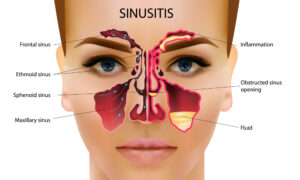Allergy Clinic
An allergy clinic is a specialized healthcare facility or department that focuses on the diagnosis, treatment, and management of allergic conditions. These clinics are dedicated to helping individuals identify their specific allergies, understand triggers, and develop strategies to manage and minimize allergic reactions.
Here are some key aspects of an allergy clinic:
1. Allergy Testing: Allergy clinics offer various methods of allergy testing to identify specific allergens that trigger allergic reactions in individuals. This may include skin prick tests, blood tests (such as specific IgE testing), or patch tests to determine allergic sensitivities to substances like pollen, dust mites, pet dander, food allergens, or certain medications.
2. Allergy Diagnosis: Based on the results of allergy testing and a comprehensive evaluation of symptoms and medical history, allergists or immunologists in the clinic can make an accurate diagnosis of specific allergic conditions, such as allergic rhinitis (hay fever), asthma, eczema, food allergies, drug allergies, or insect sting allergies.

3. Allergy Management and Treatment: Allergy clinics provide personalized management and treatment plans for individuals with allergic conditions. This may involve prescribing medications to alleviate symptoms, recommending avoidance strategies for known allergens, and developing an emergency action plan for severe allergic reactions (anaphylaxis). Immunotherapy, such as allergy shots or sublingual immunotherapy, may also be offered to desensitize individuals to specific allergens and reduce allergic reactions over time.
4. Environmental Control and Allergen Avoidance: Allergy clinics provide guidance on environmental control measures to minimize exposure to allergens in homes, schools, and workplaces. This may include advice on allergen-proof bedding, air purifiers, pollen forecasts, pet dander management, and recommendations for reducing exposure to mold, dust mites, or other triggers.

5. Patient Education and Counseling: Allergy clinics play a crucial role in educating individuals about their specific allergies, triggers, and management strategies. They provide information on how to recognize and manage allergic reactions, proper use of medications (such as antihistamines, nasal sprays, or inhalers), and advice on lifestyle modifications to improve quality of life with allergies.
6. Follow-up Care: Allergy clinics often provide regular follow-up appointments to assess treatment effectiveness, monitor symptoms, and adjust treatment plans as needed. These appointments allow healthcare professionals to evaluate the progress of allergy management, address concerns or complications, and provide ongoing support to individuals with allergic conditions.

7. Multidisciplinary Approach: Allergy clinics may have a multidisciplinary team of healthcare professionals, including allergists, immunologists, nurses, respiratory therapists, and dietitians. This collaborative approach ensures comprehensive care and expertise in managing allergic conditions.
Allergy clinics provide specialized care and expertise for individuals with allergic conditions. By seeking assistance from an allergy clinic, individuals can receive accurate diagnoses, personalized treatment plans, and education to effectively manage their allergies, reduce symptoms, and improve their overall quality of life.

